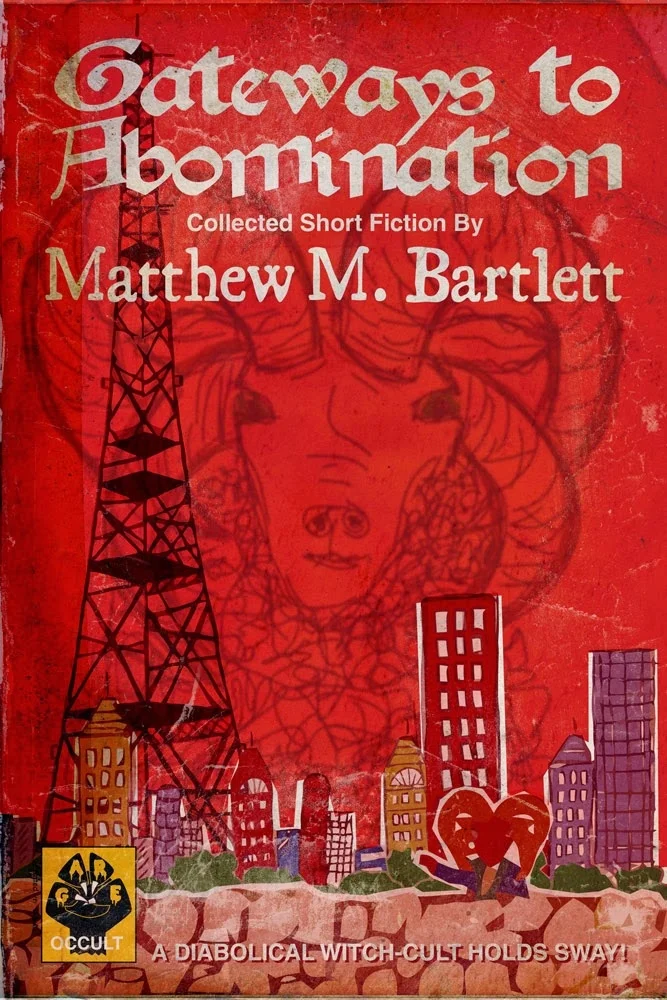Book Review : Year's Best Weird Fiction - Volume Three (2016)
I fell into the rabbit hole of weird fiction almost by accident this year. I've meant to dedicate an entire month to cosmic horror earlier this year and it turned out it isn't REALLY a genre of its own and belongs to the wider, more diverse realm of weird. What is weird fiction, though? According tho editor of Year's Best Weird Fiction : Volume Three Simon Strantzas, it's kind of...horror fiction, divorced from its inherent malignancy. There are forces beyond our control, yet their purpose cannot even be fathomed (or sometimes even perceived) by human cognition. Strantzas' philosophy on the genre is reflecting through this latest edition of Year's Best Weird Fiction. While no story Year's Best Weird Fiction : Volume Three stood out to me, it was a pleasant, somewhat anachronistic exercise in eerie discomfort.
My take on the weird fiction in this volume is that they deal in terror rather than horror. They allude to invisible forces and other worlds rather than confront you to it. Robert Aickman's The Strangers is (justifiably so) the centerpiece of Year's Best Weird Fiction : Volume Three. What's interesting about this story, outside from the fact cult author Robert Aickman wrote it, is that it addresses the question of reality and uses an unreliable narrator. Aickman was neither the first or the last author to have this idea, but what makes The Strangers fascinating is the odd split it create between reality and this strange, disquieting underworld Aickman is so good at creating. It really is, like Simon Strantzas said, horror divorced from its malignancy. It relies on its readers to bridge the gaps Aickman deliberately leave in the narrative the same way conventional horror does.
Another story I enjoyed was Lynda E. Rucker's The Seventh Wave, originally published in Terror Tales of the Ocean. This one is another creeping, discreet story about a woman's two loves: men and the sea. Rucker's unreliable narrator plays a key role here as her blunt descriptions of her domestic tragedies draws a portrait greater than the sum of its parts and gives the story a pertinent and terrifying subtext about the predatory nature of existence *. Matthew M. Bartlett's Rangel was another high point in Year's Best Weird Fiction : Volume Three for me, partly because I enjoy his obsession with the city of Leeds, Massachusetts and its pagan witch cult. While it doesn't really explores anything beyond Bartlett's comfort zone, I was happy to see him explore the fragmented memory of Leeds through the eyes of one character. It's more of a story about Leeds' folklore than a story about Leeds itself. A boogeyman story if you will.
Other stories I believe are worth mentioning: Robert Shearman's Blood, Brian Evenson's Seaside Town, Genevieve Valentine's Visit Lovely Cornwall on the Western Railway Line and Christopher Slatsky's Loveliness like a Shadow. They all have this quiet, creeping sense of dread that I believe Simon Strantzas was looking for when he put the collection together. There is no real "wow" moment in Year's Best Weird Fiction : Volume Three but it has a remarkably consistent vision, which I believe is by design. Think of it like binging a season of Night Visions mixed with Alfred Hitchcock Presents. No single episode is going to terrify you, but once you'll close the television/book, your sense of reality is going to be affected.
So, should you read Year's Best Weird Fiction : Volume Three? I think so. Short story anthologies are kind of an acquired taste and this one offers a very particular type of stories, yet it will give you a unique thrill if you're willing to work with it. It definitely is a mood read. You'll need to feel like reading subtle, atmospheric weird fiction and like discovering new authors as well. I'm not a great fan of anthologies in general. They often are thinly veiled vanity projects from their editors. This one here serves a purpose, though. Whether you're into weird fiction or simply into new thrills, products like these give this peculiar and adventurous subgenre a good name. I liked Year's Best Weird Fiction : Volume Three. Wouldn't say I was enamored with it, but it made me discover new voices and pulled me into its alternate realities at times.
* I know what you're thinking: what does it even mean "predatory nature of existence?" I'm glad you asked. What I meant by that is that Rucker's protagonist keeps running from her darker, needier parts thinking she'll find the happily ever after in another man's arms and yet her problems are only getting worse and worse. The more she acts like a prey, the more and more her own existence becomes predatory and tries to wipe her out. Does it makes sense?






